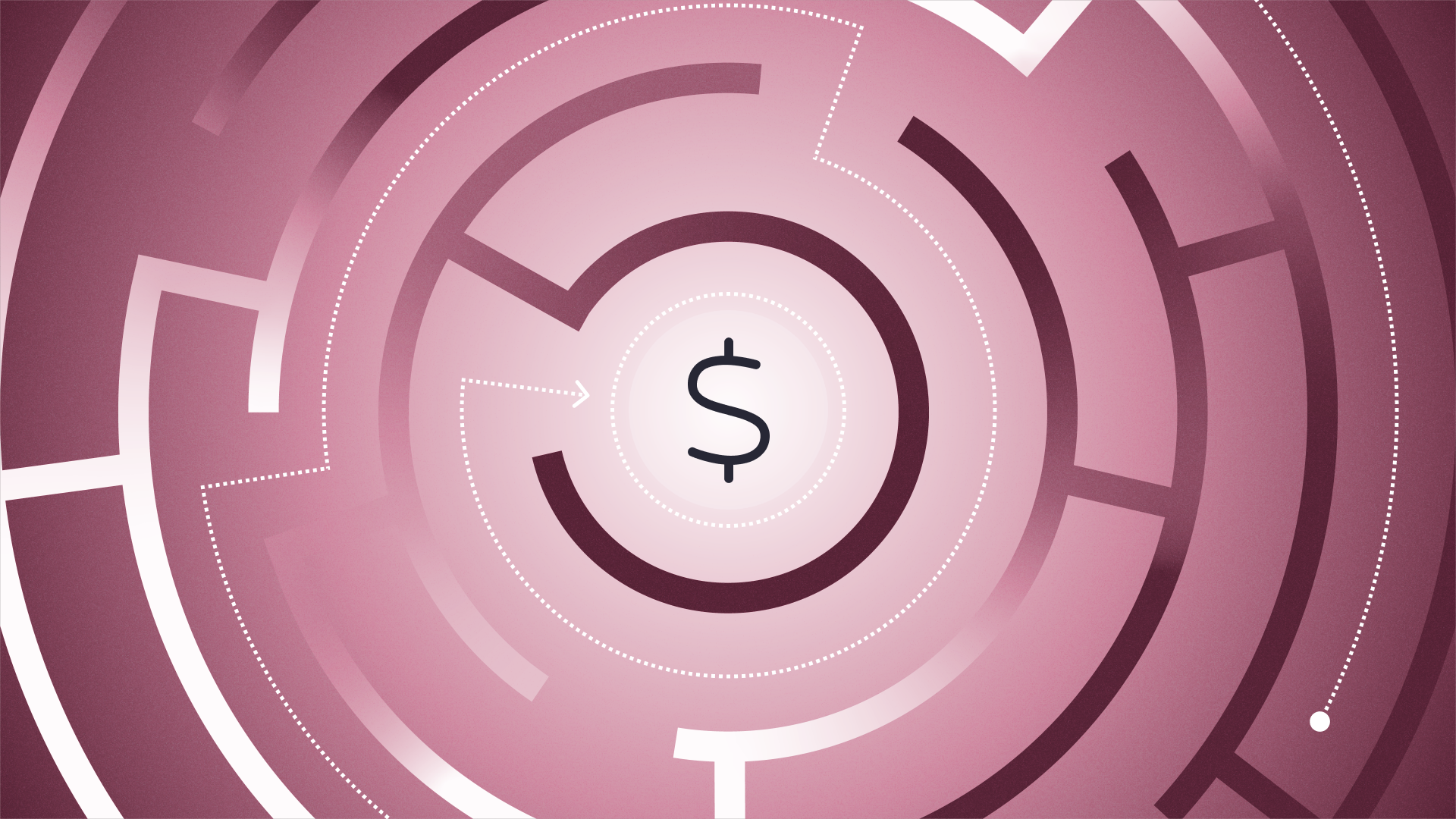Navigating the costs of launching a startup

Before you take the plunge into launching your startup, there's a lot to consider — especially when it comes to the cost. Think of these expenses as the groundwork for your journey, the stepping stones that pave the way from idea to reality. Whether it's securing your domain name, setting up shop online, or ensuring your team gets paid on time, each cost plays a role in building a strong foundation for your company.
In this guide, we'll walk you through the essential costs to consider, helping you navigate the financial terrain of starting your business with confidence.
Why should you explore startup costs before starting your company?
Understanding startup costs before you dive into launching your company isn’t just a smart move—it’s essential for your business’s survival and growth. Imagine trying to build a house without knowing how much lumber or concrete you’ll need. The same principle applies to your startup. Knowing your costs up front allows you to budget effectively, avoid unexpected financial pitfalls, and make informed decisions that keep your business on track.
When you’re clear on your startup costs, you can set realistic milestones and ensure you have the necessary resources to reach them. It’s the difference between being prepared and scrambling to make ends meet. Plus, a solid grasp of these expenses gives you the power to manage your cash flow, ensuring you have enough runway to sustain operations until your revenue starts to take off.
Understanding the different costs associated with launching a startup
Startup costs can be incurred before you’ve launched your business or might be tied to the actual launch. There might also be one-off costs that you’ll pay a single time at the beginning, or they might be costs that will pop back up on a recurring basis. Identifying the different categories of startup costs — their importance, their cadence, their flexibility — will give you a clear view of your startup expenses. This in turn will allow you to forecast your cash flow and get a sense of the money expected to flow in and out of your business in its first few months.
Here are a few of the core categories of expenses and how to think about each as you run through the list of your own startup costs:
One-time versus ongoing costs
When it comes to launching your startup, not all costs are created equal. Some are one-time expenses, while others will stick around as ongoing costs. Understanding the difference can make a big impact on how you budget and plan.
For instance, if you’re running an ecommerce company with a small team, ongoing costs might include payroll, payment processing fees, and regular vendor payments — expenses that you can predict and plan for each month. On the other hand, one-time costs could be hiring a graphic designer to create your website or purchasing a web theme. These are investments you make once at the start and then don’t have to worry about again (at least for the foreseeable future).
Ongoing costs are the steady beats of your business budget, providing a rhythm that’s easier to anticipate and manage. One-time costs, however, often pop up when you’re first launching and can sometimes catch you off guard, like unexpected repairs or initial setup fees. That’s why it’s crucial to research these expenses ahead of time and ensure you have the funds to cover them, whether it’s for incorporation fees, buying essential equipment, or securing licenses.
As a general rule, aim to keep your ongoing costs manageable and predictable, and be prepared for those one-time expenses, especially in the early stages. Setting up automated payments for your recurring costs can help you stay on top of your budget.
Fixed versus variable costs
In the case of ongoing or recurring costs, you should also consider whether those costs are fixed or variable. Fixed costs are consistent, staying the same month after month, while variable costs can change depending on factors like the season or your business’s activity level.
Fixed costs are the steady, predictable expenses that form the backbone of your budget — think rent on a retail space with a long-term lease. These costs are easier to plan for because you know exactly what you’ll owe each month. On the other hand, variable costs, such as utilities, shipping fees, and supplies, can fluctuate, sometimes catching you off guard.
Since variable costs can swing with the ups and downs of your business, it’s smart to plan for a cash buffer before getting your startup off the ground. Monitoring these expenses closely can help you spot patterns and anticipate changes. For a SaaS company, variable costs might include things like cloud hosting fees, which can increase as your user base grows, or customer support costs, which might rise during product launches or updates. By understanding and planning for both fixed and variable costs, you’ll be better equipped to navigate the financial ebbs and flows of your business.
Essential versus optional costs
Another important variable is the level of importance associated with different startup costs.
Essential costs are must-have expenses needed to operate your company. These vary widely depending on your business model, industry, etc. For example, if you run a brick-and-mortar business with no employees, your essential costs might include rent, utilities, insurance, and inventory. For an ecommerce company with three employees, essential costs might include payroll, website costs, domain and hosting, and payment processing fees.
Optional costs are nice to have but are not necessary. They can be an educational resource or a piece of equipment that might enhance your way of doing business, but you can survive without them. For example, an ecommerce company may choose to pay for social media publishing tools like Buffer or Sprout Social as part of their initial startup plan. While these costs might be deemed valuable — social promotion can be a great way to build buzz and awareness in your startup’s early days — they aren’t mission critical to the day-to-day business operations of running your company.
When you’re just starting your business, it’s encouraged to stick to your core expenses and to only add optional expenses as you grow and become more profitable.
Common startup expenses
Although startup costs vary widely depending on your business and the industry it operates in, there are some common expenses worth keeping in mind. Below, we've listed some of the most common startup costs to keep in mind as you budget and finally prepare to launch your business:
Incorporation
There are several ways to structure your business, including as a limited liability company (LLC) or a sole proprietorship, which are common options in a company’s earlier stages. Incorporating comes with a host of benefits, including ensuring the protection of your personal assets and the ability to open a business bank account. The costs of incorporation can include fees for filing articles of incorporation with the Secretary of State, franchise taxes, and getting an attorney.
Office space
The cost of office space varies widely depending on factors like your location, whether you’re looking to rent or buy, and how much space you'll need. Sometimes, co-working spaces can offer cheaper, more flexible options than traditional rental units. Virtual offices are also popular for small companies. For example, if you’re an ecommerce company with three employees, you might not need or be able to afford a physical space just yet. But in that case, you’ll want to make sure you factor any necessary subscriptions (Zoom, Slack, etc.) to support your company’s remote model.
Payroll
Payroll is often cited among the most expensive monthly startup costs. This includes the paychecks you send to employees, as well as processing costs from using payroll platforms like Gusto.
Website
Your website is often the first place potential customers interact with your brand, so making a strong first impression is key. Costs for setting up your website can include purchasing a domain name, web hosting, and investing in a website template or designer. Whether you’re building from scratch, using a platform like WordPress or Squarespace, or hiring a professional to create something custom, these expenses can vary. For an e-commerce site, you might need features like a shopping cart and payment gateway, while a SaaS company might prioritize a clean user interface and seamless customer onboarding. No matter your business type, you’ll need to invest in a website that is functional, reflects your brand’s identity, and serves your customers’ needs.
Marketing
When launching your startup, generating buzz and getting your name out there is crucial. The initial marketing costs are all about building brand awareness and driving those first waves of customer interest. These costs can include creating a compelling brand identity, developing launch campaigns, and investing in early-stage advertising efforts. You might spend on social media ads to build a following, search engine marketing to appear in relevant searches, or even direct mail for targeted outreach. Additionally, you may invest in a professionally designed logo, marketing materials, and a launch event to make a splash. While ongoing marketing will focus on sustained growth, your initial marketing budget is dedicated to making sure your startup starts with a bang, grabbing attention, and setting the stage for long-term success.
Inventory
If your startup sells physical goods, inventory costs are important to consider. Quantity, size, storage time, and storage location of your goods are all factors that impact inventory costs. (Some companies opt out of inventory altogether, choosing to create products after an order has been placed or by dropshipping.)
Equipment
Equipment is a critical investment for startups, directly impacting your team’s productivity and growth. Whether you need laptops and servers for a SaaS company or prototyping tools for a hardware startup, the right equipment will support your business operations and scalability. Focus on acquiring technology that meets your current needs and can scale as your business grows.
Are business startup costs tax-deductible?
It’s important to understand the distinction between startup costs and business expenses because the IRS treats both of these costs differently.
According to the IRS, startup costs are related to the creation, launch, or acquisition of a business. These can include things like advertising, training new employees, and traveling to new cities to find a workspace. It’s possible to deduct up to $5,000 in startup costs.
Organizational costs include any costs involved in forming your business, including the cost of incorporation and stipends you might pay temporary directors. Like startup costs, it’s possible to deduct up to $5,000 in organizational costs.
In both of these cases, if your total startup costs exceed $50,000, the amount you can deduct from $5,000 will be reduced by the amount you go over. For example, if your total expenses are $52,000, that is $2,000 over the allotted amount. Take your overage amount and subtract it from the $5,000 deduction. The total amount you can deduct is $3,000.
On the other hand, business expenses are those that are ordinary and necessary to run your business.
Ordinary expenses are those that are common in your industry. Necessary expenses are those required for you to run your business. Ordinary and necessary expenses include payroll costs, taxes, and insurance.
Owners can deduct up to 20% of qualified business income. Your expenses can be deducted from your adjusted gross income (AGI), effectively lowering the amount you’ll pay in taxes.
There are many gray areas you will encounter when trying to figure out which costs are tax-deductible. For questions about your situation, it’s a good idea to seek out help from a tax professional.
How do I calculate total startup fees?
Understanding how much it costs to run your business will help you work toward profitability. To calculate startup fees, list out your potential expenses and their estimated costs.
The Small Business Administration has a startup costs worksheet that can help you with this process.
Take all of the pertinent expenses mentioned above and create estimates for each category. Remember: some expenses are clear-cut and fixed while others are one-time expenses that are more amorphous. Do your best to estimate costs based on current market conditions and research. Once you have your list complete, add up all of your projected numbers.
Getting a handle on the costs of launching and running your business isn’t just a smart move—it’s the key to laying down a solid foundation for your company. With a clear view of these expenses, you’re setting yourself up for steady growth and paving the way for long-term success.
Want to hear directly from a founder? Watch our video with Mango Puzzles co-founders Kemal Didić and Svet Lovoukhin on launching their business and navigating costs:
Related reads

The founder-led sales blueprint before making your first sales hire

When founders stop paying themselves (and why it’s usually a bad sign)

The ultimate financial stack for SaaS startups
